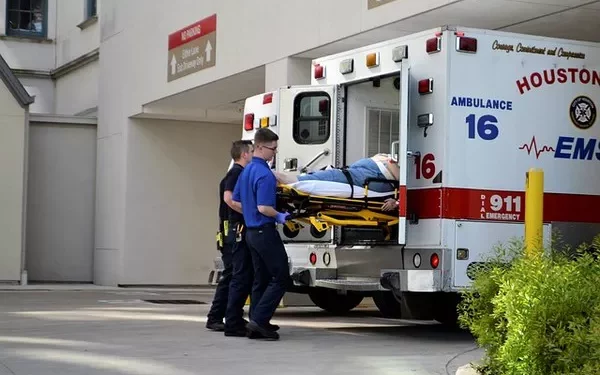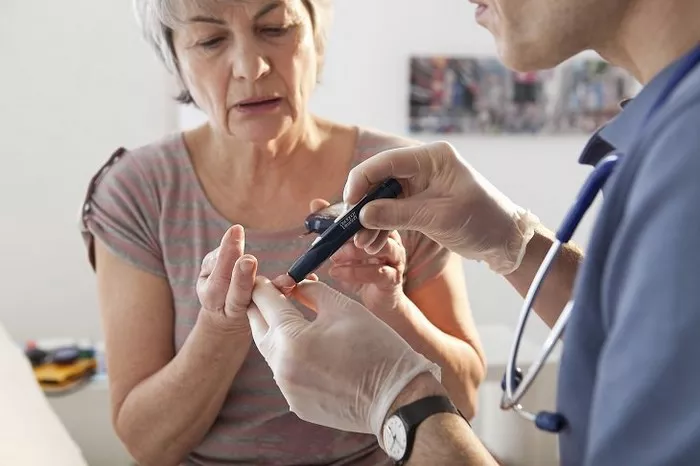Hypoglycemia, commonly referred to as low blood sugar, occurs when blood glucose levels drop below normal. While mild to moderate hypoglycemia can often be managed with prompt intake of glucose, severe hypoglycemia is a medical emergency that can have dire consequences if not treated immediately. This article explores the various impacts and potential complications of severe hypoglycemia, including physiological, neurological, and long-term effects.
Understanding Hypoglycemia
Hypoglycemia is defined as a blood glucose level of less than 70 mg/dL (3.9 mmol/L). The severity of hypoglycemia can range from mild (where symptoms can be self-treated) to severe (requiring third-party assistance). Severe hypoglycemia typically occurs when blood glucose levels fall below 54 mg/dL (3.0 mmol/L).
Causes of Severe Hypoglycemia
The most common causes of severe hypoglycemia include:
- Diabetes Medications: Insulin and sulfonylureas, often prescribed to manage diabetes, can lower blood sugar levels too much if not properly balanced with food intake and physical activity.
- Excessive Alcohol Consumption: Alcohol can interfere with the liver’s ability to release glucose into the bloodstream.
- Insufficient Food Intake: Skipping meals or not eating enough can lead to a drop in blood sugar levels.
- Intense Physical Activity: Vigorous exercise increases glucose utilization by muscles, potentially leading to hypoglycemia, especially if not balanced with adequate carbohydrate intake.
Symptoms of Severe Hypoglycemia
Early signs of hypoglycemia include sweating, trembling, hunger, and anxiety. As blood sugar levels continue to drop, more severe symptoms can emerge:
- Confusion
- Seizures
- Loss of consciousness
- Difficulty speaking
- Blurred vision
Immediate Consequences of Severe Hypoglycemia
Cognitive Impairment
Severe hypoglycemia can lead to significant cognitive dysfunction. The brain relies on glucose as its primary energy source, and a lack of glucose can impair cognitive processes. Symptoms include confusion, poor concentration, and impaired judgment.
Loss of Consciousness
When blood glucose levels fall too low, it can result in a loss of consciousness. This is because the brain is unable to function properly without an adequate supply of glucose.
Seizures
Hypoglycemia can induce seizures, which are a result of the brain’s response to the extreme lack of glucose. These seizures can be dangerous and potentially life-threatening if not promptly addressed.
Death
In the most severe cases, untreated hypoglycemia can lead to death. This typically occurs when the brain is deprived of glucose for a prolonged period, leading to irreversible damage and eventual shutdown of vital functions.
Long-Term Effects of Severe Hypoglycemia
Neurological Damage
Repeated episodes of severe hypoglycemia can cause cumulative damage to the brain. Chronic hypoglycemia is associated with an increased risk of cognitive decline and neurological disorders. This damage is often subtle and may present as memory loss, reduced attention span, and difficulty with complex tasks.
Increased Risk of Dementia
Studies have shown that recurrent severe hypoglycemia is linked to an elevated risk of developing dementia. The exact mechanisms are not fully understood, but it is believed that repeated episodes of low blood glucose can lead to neuronal death and cognitive decline over time.
Cardiovascular Complications
Severe hypoglycemia can cause significant stress on the cardiovascular system. Episodes of low blood sugar are associated with increased heart rate, high blood pressure, and can trigger arrhythmias. Over time, this stress can contribute to the development of cardiovascular diseases such as heart attacks and strokes.
Psychological Impact of Severe Hypoglycemia
Fear of Hypoglycemia (FoH)
Fear of hypoglycemia is a common psychological consequence, particularly in individuals who have experienced severe episodes. This fear can lead to anxiety, reduced quality of life, and can negatively impact diabetes management. Patients may intentionally keep their blood sugar levels higher than recommended to avoid the risk of hypoglycemia, which can lead to poor glycemic control and increased risk of complications.
Depression and Anxiety
The stress and anxiety associated with managing diabetes and the fear of hypoglycemia can contribute to mental health issues such as depression and generalized anxiety disorder. This can create a vicious cycle where poor mental health leads to worse diabetes management and vice versa.
Preventing Severe Hypoglycemia
Regular Monitoring of Blood Glucose Levels
Frequent blood glucose monitoring can help detect hypoglycemia early and allow for prompt treatment. Continuous glucose monitors (CGMs) are particularly useful as they provide real-time glucose readings and can alert patients to impending hypoglycemia.
Education and Awareness
Educating patients on the signs and symptoms of hypoglycemia, as well as how to treat it, is crucial. This includes understanding how different foods, physical activity, and medications affect blood glucose levels.
Medication Management
Adjusting diabetes medications, especially insulin and sulfonylureas, can help prevent severe hypoglycemia. This might include using long-acting insulins that provide a more stable release of insulin or newer medications that have a lower risk of causing hypoglycemia.
Dietary Considerations
Ensuring regular meal patterns and incorporating snacks when necessary can help maintain stable blood glucose levels. Including complex carbohydrates that release glucose slowly can also be beneficial.
Personalized Care Plans
Individualized diabetes management plans that take into account a patient’s lifestyle, activity level, and risk factors for hypoglycemia can help prevent severe episodes. Regular follow-ups with healthcare providers to adjust treatment plans as needed are essential.
Emergency Treatment of Severe Hypoglycemia
Glucose Administration
Immediate administration of fast-acting glucose is the primary treatment for severe hypoglycemia. This can be in the form of glucose tablets, gels, or even sugary drinks.
Glucagon Injection
For individuals who are unconscious or unable to swallow, a glucagon injection can rapidly raise blood glucose levels. Glucagon is a hormone that stimulates the liver to release stored glucose into the bloodstream.
Hospitalization
In severe cases, hospitalization may be required. Intravenous glucose administration can quickly restore normal blood sugar levels. Continuous monitoring and supportive care are provided to ensure the patient’s safety and recovery.
Special Considerations for Vulnerable Populations
Children and Adolescents
Children and adolescents with diabetes are particularly vulnerable to severe hypoglycemia due to their varying insulin needs and unpredictable eating and activity patterns. Parental education and school staff training are essential to manage hypoglycemia in these age groups.
Elderly
The elderly are at higher risk for severe hypoglycemia due to multiple factors such as polypharmacy, cognitive impairment, and reduced counterregulatory responses. Individualized treatment plans and regular monitoring are crucial for this population.
Pregnant Women
Pregnant women with diabetes need careful monitoring and management to avoid hypoglycemia, which can harm both the mother and the fetus. Close collaboration with healthcare providers specializing in maternal-fetal medicine is important.
Research and Future Directions
Recent advances in diabetes technology, such as the development of more sophisticated CGMs and hybrid closed-loop insulin delivery systems (artificial pancreas), are promising in reducing the incidence of severe hypoglycemia. Ongoing research aims to better understand the long-term effects of hypoglycemia on the brain and cardiovascular system, as well as to develop new medications that manage blood glucose with a lower risk of hypoglycemia.
See also: Why Do I Get Hypoglycemia After Eating
Conclusion
Severe hypoglycemia is a serious and potentially life-threatening condition that requires immediate attention and appropriate management. Understanding the causes, recognizing the symptoms, and knowing the long-term consequences are crucial for preventing and effectively treating hypoglycemia. Through regular monitoring, patient education, and advancements in diabetes technology, the incidence and impact of severe hypoglycemia can be significantly reduced, leading to better outcomes and improved quality of life for individuals with diabetes.
Related topics:
Why Doesn T Metformin Cause Hypoglycemia

























